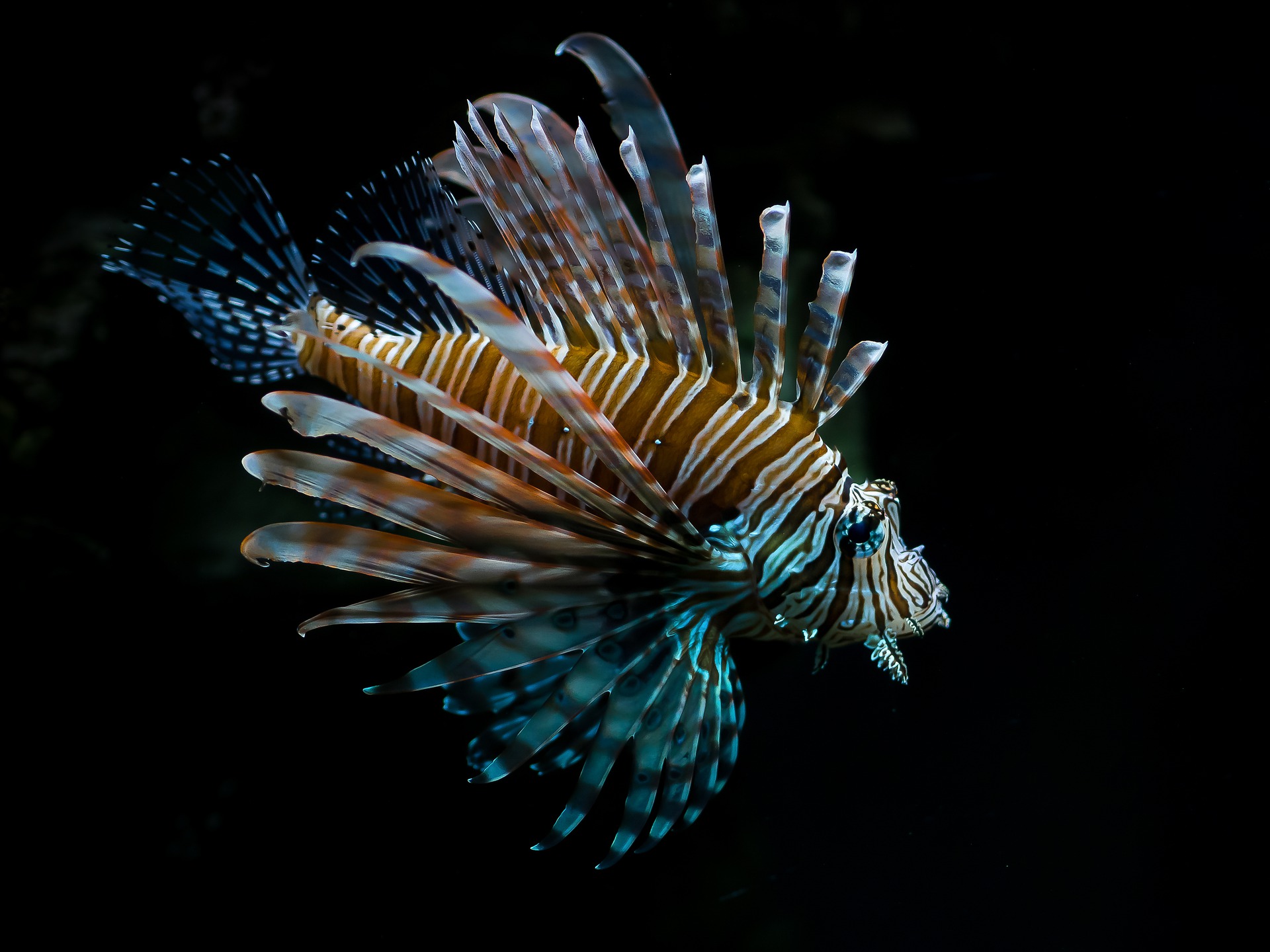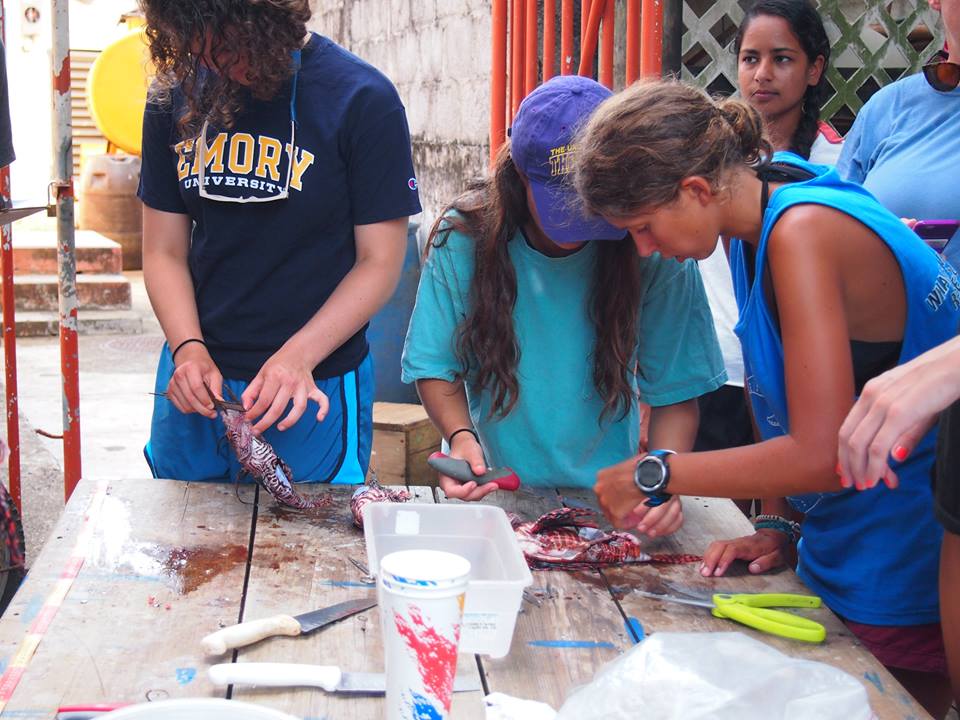
#11 The Invasive Lionfish
 The saying every rose has its thorn, perfectly describes the invasive lionfish—beautiful, but dangerous. Lionfish are native to the Pacific Ocean, where they are kept in check by predators only found there. But unfortunately, either through aquarium trade, storms, shipping or other disturbance, the lionfish has found their way to the Atlantic. Lionfish lack predators in the Atlantic and are able to out-compete other marine animals, which is damaging many Atlantic coral reef ecosystems, as the predate on other species and reproduce. It has just been in the last 15 years that lionfish started being sighted in the Caribbean, Gulf of Mexico and southeast coast of the U.S. Luckily, people have been coming up with many unique strategies to educate about the threat of lionfish and attempt to keep their populations in check. In this activity, kids will learn more about lionfish and the impacts of invasive species in general.
The saying every rose has its thorn, perfectly describes the invasive lionfish—beautiful, but dangerous. Lionfish are native to the Pacific Ocean, where they are kept in check by predators only found there. But unfortunately, either through aquarium trade, storms, shipping or other disturbance, the lionfish has found their way to the Atlantic. Lionfish lack predators in the Atlantic and are able to out-compete other marine animals, which is damaging many Atlantic coral reef ecosystems, as the predate on other species and reproduce. It has just been in the last 15 years that lionfish started being sighted in the Caribbean, Gulf of Mexico and southeast coast of the U.S. Luckily, people have been coming up with many unique strategies to educate about the threat of lionfish and attempt to keep their populations in check. In this activity, kids will learn more about lionfish and the impacts of invasive species in general.
Materials
Paper
Paint or markers
Printer (optional)
Instructions
- Watch this video about invasive lionfish In Florida:
- Create your own definition of what the term invasive species means. Can you think of examples of invasive plants or animals that live where you are? How are they impacting your area?
- Imagine you live in a place where lionfish are invasive. Based on what you learned in the video, design a flyer that explains to people why lionfish are a harmful to coral reef ecosystems.
- Option to use this lionfish coloring page to include an image on your flyer:
Ocean Matters Connection
Ocean Matters teens removed invasive lion fish from the coral reef of Utila, Honduras and dissected them to study their stomach contents to help researchers better understand exactly how their predation on the reef is impacting other reef dwelling populations. We also had a lionfish fish-fry as a celebration of the completion of the project. It turns out that lion fish are actually delicious when prepared properly; but first, you must remove their venomous spikes. Ocean Matters teens have also removed an invasive species of mangroves in Hawai’i from native fishponds toward helping to improve the health of the fishponds and the surrounding coral reef.
Arcadia Davies, Ocean Matters Youth Advocate Leader, recently graduated from Miami University with an interdisciplinary degree focusing on marine ecology and community engagement. She is passionate about connecting communities, especially youth, in ocean conservation projects. During college she practiced communicating science to the public through serving as the communication intern at The Island School in The Bahamas and taking numerous classes in marine ecology, creative writing, journalism, photography and community engagement. Arcadia has loved the ocean since a young age and strives to share that love with others.

